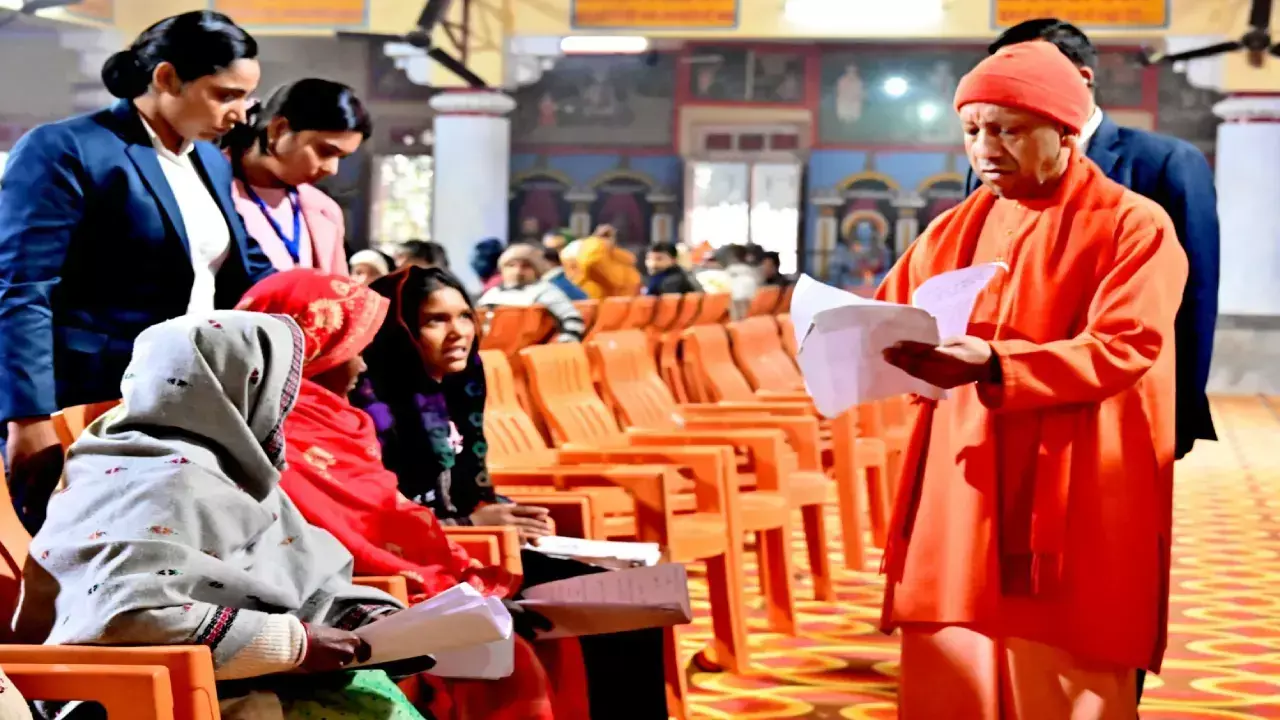People's RTI overrides official secrets
 People’s RTI overrides official secrets
People’s RTI overrides official secretsThe Supreme Court reminded the government about the existence of the Right to Information Act, which overrides the Official Secrets Act (OSA) 1923.
The Supreme Court reminded the government about the existence of the Right to Information Act, which overrides the Official Secrets Act (OSA) 1923.
Justice Joseph, one of the three judges on the Bench which is hearing the petition to review SC's December 14 order ruling out the need to probe into Rafale deal, asked the government to read out Sections of the Right to Information (RTI) Act, 2005. The judge said the information law has revolutionised governance and overpowered notions of secrecy protected under the Official Secrets Act, 1923.
On the Bench's suggestion the Attorney-General K K Venugopal has read out Section 22 of the RTI Act, which declared the RTI to have an "overriding effect" over OSA. Then Section 24, mandates even security and intelligence organisations to disclose information on corruption and human rights violations. Finally, Section 8(2), which compels the government to disclose information "if public interest in disclosure outweighs the harm to protected interests".
Section 22, 24 and Section 8(2) are crucial provisions of the Right to Information which gives primacy to public interest and transparency over the 'secrets' even if the organisations were totally exempted from the RTI. Especially when corruption or violation of human rights are possible reasons to hide the information, the access law mandates such information to be disclosed.
When Venugopal defended that defence purchases dealt with the security of the State, which "supersedes everything else", Justice Joseph countered, "Parliament has passed the RTI Act in 2005 and brought about a complete revolution, a complete change. Let us not go back to what it was".
The government pleaded with the court to refrain from examining the documents, which were earlier alleged to have been stolen by someone. The Attorney General has warned the journalists and lawyers who were using the 'stolen' documents, with a prosecution under Official Secrets Act. Later the AG clarified that government had no intention to prosecute journalists or lawyers for this. But he reiterated that the court cannot examine the stolen documents or documents which were illegally obtained. Thereafter the AG stated that documents were not stolen from defence department, but only photocopies of the documents were taken.
The government pleaded that those documents which have already been published in the media, on the purchase of the Rafale fighter aircraft were unauthorisedly photocopied from the originals kept in the Ministry of Defence and sneaked into the public domain. In an affidavit filed on March 13, the government said the leak was a "conspiracy" to jeopardise national security and friendly relations with France, the home of Rafale's manufacturer, Dassault Aviation.
The Bench reserved its orders on two preliminary issues — the admissibility of "stolen" documents as evidence and the claim of privilege raised on them by the government. Justice Joseph asked Venugopal, "How is it that you decide privilege protection? Is there a high-level, inter-departmental call taken on this? Can't the court even examine the documents to decide your claim of privilege?" He asked what the logic was behind claiming privilege now when the documents were already in the public domain.
"They have produced it in the public domain after stealing it. The State documents cannot be published without explicit permission," Venugopal cited Section 123 of the Evidence Act. Advocate Prashant Bhushan, who is one of the review petitioners, said, "Documents are already in public domain in public interest. There is a lot of Supreme Court judgments which hold that public interest trumps over privilege." He pointed out that the government itself has filed the Comptroller and Auditor General (CAG) report detailing "10 kinds of defence purchases, but only the details of the Rafale deal are redacted. Why? The government note in the Supreme Court in November 2018 said the CAG report would be redacted. How did the government know then the CAG report would be redacted?" Bhushan asked.
When the matter was last heard on March 6, Venugopal had submitted that disclosure of the contents of the Defence Ministry note amounted to an offence under the Official Secrets Act. It was his contention that such stolen documents cannot be relied upon by the court unless the source from which the same was procured is disclosed.
Justice Joseph had, however, expressed his disinclination to go along with that argument asking the AG, "Can relevant evidence be cut out saying it is illegally obtained? Can't stolen evidence be looked into if it is relevant?"
Besides placing heavy reliance on Section 123 of the Indian Evidence Act to contend that the document in question cannot be used in court without the permission of the concerned officer of the Union government, the AG also submitted that the document in question can be withheld from disclosure under the RTI Act.
While Venugopal cited Section 24 of the RTI Act regarding exemption granted to intelligence and security organisations (from disclosing information), Justice Joseph adverted to the proviso to the said Section stating that in cases of corruption and human rights violations, the protection afforded by Section 24 won't be available. In case of corruption and human rights violations, sensitive organisations will have to disclose information, he said. Justice Joseph also referred to Section 22 of the RTI Act which states that the RTI Act shall override the Official Secrets Act and any other law.
Referring to the RTI Act as a piece of legislation which brought about a "revolution", Justice Joseph underlined the fact that with the ushering in of RTI jurisprudence, we have to look forward when it comes to disclosure of information and not go back to the earlier stances adopted in this regard.
He also referred to the stand of the Union government in 2009 when it had said that file notings can be made available under the RTI Act.
The AG relied on Section 8(1)(a) of RTI Act, which exempts the information relating to national security. Then Justice K M Joseph referred to Sections 22, and 24 of that Act, which provided exemption to exemption which means the information has to be given.
Prashant Bhushan contended that the concern of the government was not to protect national security but to protect the government officials who interfered with the negotiations in the deal.
Undoubtedly, any information that is in the interest of national security should not be disclosed. There should not be any scope for enemy to use the information about Rafale. At the same time, the information which has nothing to do with 'security' but suppressing it to hide the irregularities or corruption cannot be justified. Security information could be redacted and rest has to be given for judicial examination.
(The writer is former Central Information Commissioner and Professor of Law, at Bennett University, Greater Noida)















